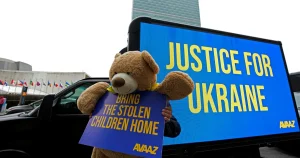The recent revelation that Finland’s Lucia, a young woman of color, has been subjected to thousands of racist messages has sparked a national conversation about racism and online hate speech. The sheer volume of the attacks raises serious concerns about the potential for orchestrated harassment campaigns, leading the Discrimination Ombudsman to call for a thorough investigation into the matter. This incident highlights the increasing prevalence of online hate and the urgent need for effective strategies to combat it, particularly when directed at vulnerable individuals in the public eye. The situation also underscores the societal anxieties surrounding issues of race and representation, particularly in a country like Finland that is grappling with its own evolving multicultural identity.
The case of Finland’s Lucia represents a disturbing trend in which online platforms are weaponized to spread hate and intimidation. While social media has undeniably democratized communication and provided a platform for marginalized voices, it has also become a breeding ground for intolerance and abuse. The anonymity afforded by the internet often emboldens individuals to engage in behavior they would likely avoid in face-to-face interactions. Furthermore, the viral nature of online content allows hateful messages to spread rapidly and widely, amplifying their impact and creating a hostile environment for targeted individuals. This case demonstrates the insufficiency of current measures to prevent and address online hate, prompting a renewed call for stronger regulations and platform accountability.
The potential for orchestrated harassment campaigns adds another layer of complexity to this already troubling situation. If these attacks are indeed coordinated, it suggests a deliberate and malicious effort to silence and intimidate not only the Lucia herself, but also other members of marginalized communities. Such campaigns can have a chilling effect on free speech and civic participation, creating a climate of fear and discouraging individuals from expressing their views or engaging in public life. The investigation by the Discrimination Ombudsman is crucial to determine the extent of the coordination and identify the individuals or groups responsible. This will not only help to bring the perpetrators to justice but also provide valuable insights into the tactics and strategies employed by online hate groups.
This incident also raises important questions about the role of media and public figures in shaping public discourse. While media coverage is essential to bring attention to important issues like racism and online hate, it is crucial that this coverage is responsible and avoids sensationalizing or further victimizing the target. Public figures, particularly those in positions of power, have a responsibility to condemn hate speech unequivocally and to use their platforms to promote tolerance and inclusivity. Their silence or inaction can be interpreted as tacit approval, emboldening perpetrators and further marginalizing victims. The response to this incident will be a litmus test for Finnish society’s commitment to combating racism and protecting the rights of all its citizens.
The case of Finland’s Lucia also reflects broader societal anxieties surrounding race and representation. As Finland becomes increasingly diverse, conversations about national identity, belonging, and inclusion are becoming more prominent and often contentious. The racist attacks targeting the Lucia can be seen as a backlash against this growing diversity, an attempt to maintain traditional notions of Finnishness and exclude those who do not fit the mold. This incident underscores the need for open and honest dialogue about race and racism in Finland, as well as a commitment to fostering intercultural understanding and respect.
Moving forward, it is crucial that this incident serves as a catalyst for meaningful change. This requires a multi-faceted approach that includes strengthening legal frameworks to combat hate speech, increasing platform accountability for content moderation, promoting media literacy and critical thinking skills, and investing in education and awareness campaigns to challenge prejudice and promote inclusivity. It is also essential to support and empower victims of online hate, providing them with the resources and support they need to cope with the emotional and psychological trauma of these attacks. The case of Finland’s Lucia is a stark reminder that the fight against racism and online hate is far from over and requires sustained effort from individuals, institutions, and society as a whole. This incident should be a turning point in fostering a more inclusive and equitable society for all in Finland. Ignoring the implications of this event would be a disservice to the Lucia, the community she represents, and the future of Finnish society. The time for action is now, and the responsibility rests with everyone to create a world where such hateful attacks are not tolerated.














